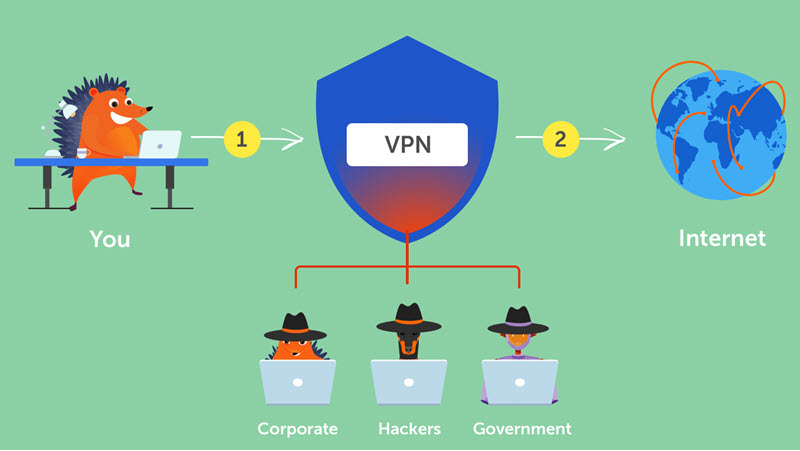Since most of the time, we are connected to the internet, the need for online security and privacy has become increasingly important. One tool that has been gaining popularity for achieving this is a Virtual Private Network (VPN). Everyone would have heard of or used this product most of the time.
But the question remains, do we need a VPN for daily use on Windows PCs? Let’s explore the concept of a VPN and how it works, its benefits, and the common scenarios where it can be helpful for daily use.
Choosing the right VPN software for a Windows 11 or 10 PC can be difficult. Two popular options are NordVPN and Surfshark. While I personally use Surfshark, both solutions have their own set of features and benefits. You can get a free VPN trial from Surfshark and see how it is useful for your daily internet usage.
What is a VPN, and How it Works
A VPN (Virtual Private Network) is a technology that allows users to create a secure and encrypted connection to another network over the internet from most devices, like desktops, laptop computers, smartphones/tabs, and even smart TVs. This connection is called a “tunnel.” Users can securely access Internet services and networks through this tunnel with proper encryption.

VPN providers such as Surfshark allow users to create an encrypted connection between the device and their VPN servers, which can be located anywhere in the world. Once the connection is established, the user’s internet traffic is routed through the VPN server, which encrypts the data, and protects it from being intercepted by third parties.
Major Benefits of VPN
One of the main benefits of using a VPN is increased online security. By encrypting the user’s internet traffic, a VPN helps to protect the user’s data from being intercepted by hackers or other malicious actors. This is the ideal solution when your use public Wi-Fi networks such as hotels, airports, or shopping malls.
Another benefit of using a VPN is increased privacy. Routing the user’s internet traffic through a VPN server can help hide the user’s IP address and location, making it more difficult for third parties to track the user’s online activities. Also, VPNs allow users to access geo-restricted content in particular areas. So, you can unlock content from Netflix, news channels, education websites, and many more that are restricted to a specific country only.
Daily Use Scenarios for a VPN on Windows PCs
So far, we have understood the fundamentals of VPN, how it works, and its benefits; our main question is why someone still has to use VPN on a Windows computer.
Here are the primary reasons you can relate to your situation and requirements.
- Browsing the web securely makes it more difficult for hackers or other malicious actors to intercept sensitive information, such as login credentials or personal data/financial details.
- Protect your network activities while using public Wi-Fi.
- Accessing blocked content: By connecting to a VPN server in the desired country, you can access content that would otherwise be unavailable.
Alternatives to using a VPN
Though VPN technology is totally different, and there are no other alternatives to replace it, users can follow specific methods/steps to protect their network activities without VPN.
- Using a firewall: The built-in Windows 11/10 firewall can do a good job. But professional antivirus/personal firewall products can efficiently protect and monitor devices’ incoming and outgoing network traffic. This method can enhance the network security of your computer.
- Also, dedicated Anti-virus software can detect and remove malicious software, such as viruses, malware, and spyware. It can also help to prevent future infections by scanning files and email attachments for known threats.
- Using browser extensions: Browser extensions, such as ad-blockers, can be used to block unwanted content, such as ads and pop-ups, and can also help to protect users from malicious websites.

As you can compare, the firewall or anti-virus software is focused on protecting the user’s device. At the same time, a VPN protects the user’s internet traffic by encrypting and routing it through a VPN server.
In summary, you may not need a VPN on your Windows 11 PC if you are only using it for personal use in a protected environment and are not accessing sensitive information. However, suppose you are using your PC/laptop for work or accessing sensitive information over the public Internet. In that case, a VPN can provide an additional layer of security by encrypting your internet connection and hiding your IP address.






